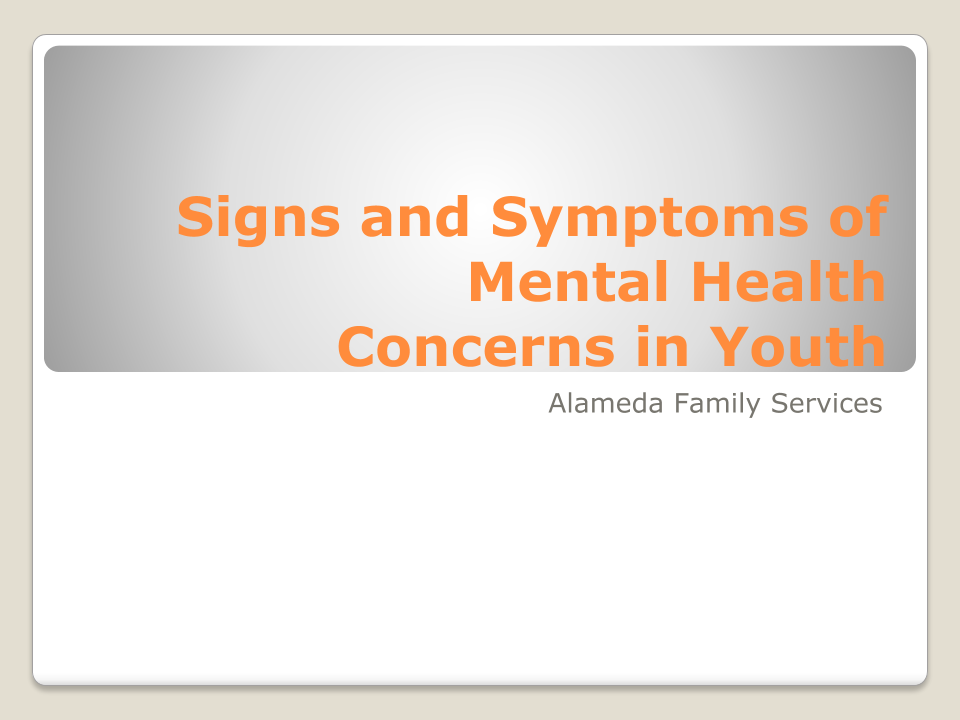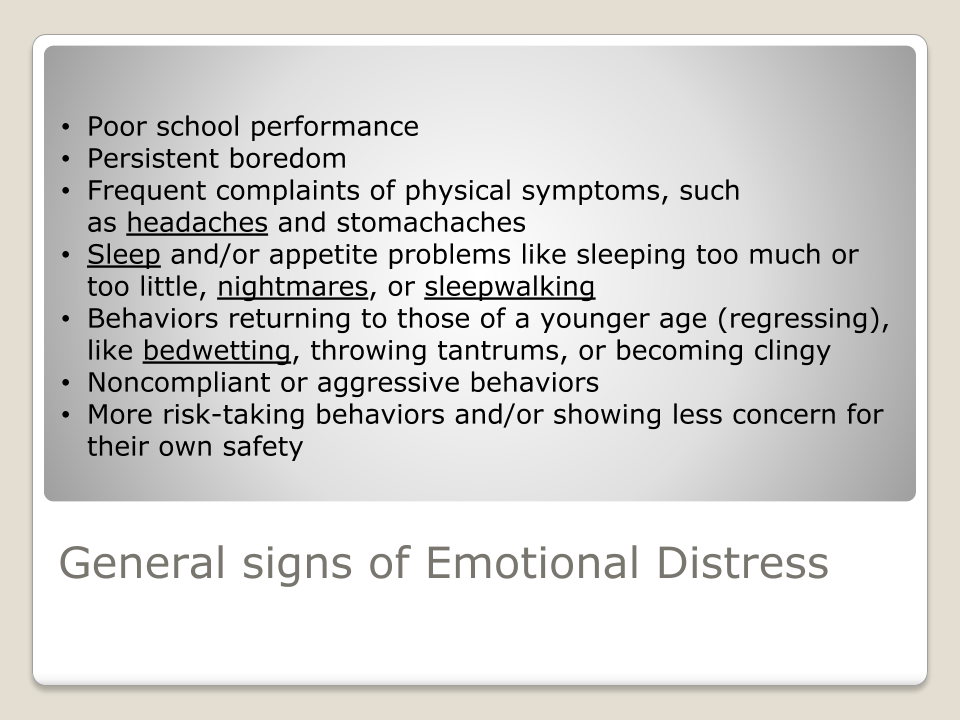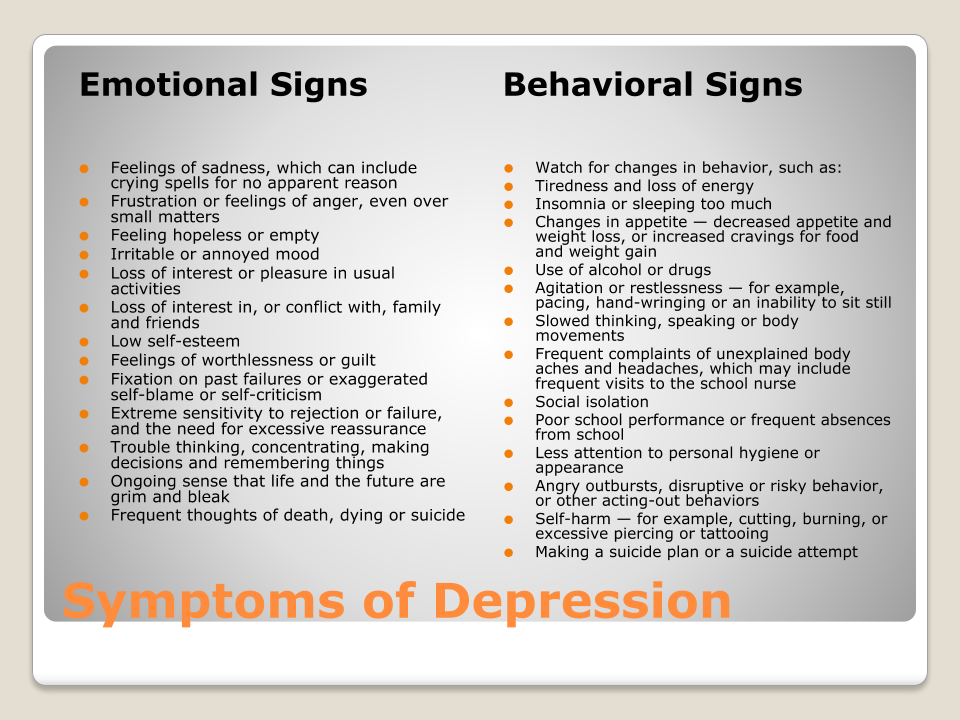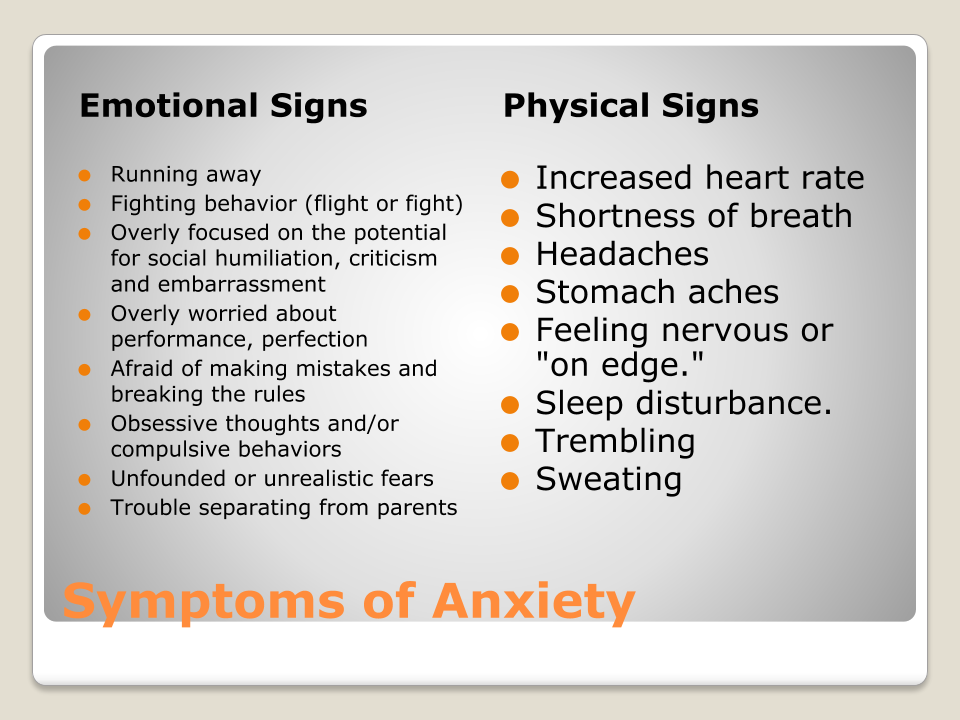See
See.
Without question, our children experience a lot of ups and downs. But some behaviors are a sign of something more serious than a passing mood, especially if they have lasted more than two weeks:
-
Changes in sleeping, eating, or social habits
-
Sudden weight loss or gain
-
Lack of interest in favorite pastimes
-
Declining academic performance
-
Reckless behavior
-
Trouble concentrating or making decisions
-
Restlessness, excessive worry/stress
-
Isolation or sudden changes in peer relations
-
Self-harm (such as cutting)
-
Unusual fatigue or sleeping
-
Irritability or anger
-
Persistent feelings of sadness, emptiness, or hopelessness
-
Thoughts of death or suicide
-
Unexplained aches or pains that don’t go away when treated
Mental health professionals now know that these behaviors may be a sign of deep unhappiness or anxiety in youth. Those feelings, in turn, can lead to:
Did you know that suicide is the 2nd leading cause of death among Americans aged 15-24?
Mental health professionals also know that mental challenges can be treated. Click here to learn how to begin the conversation and where to get help.



